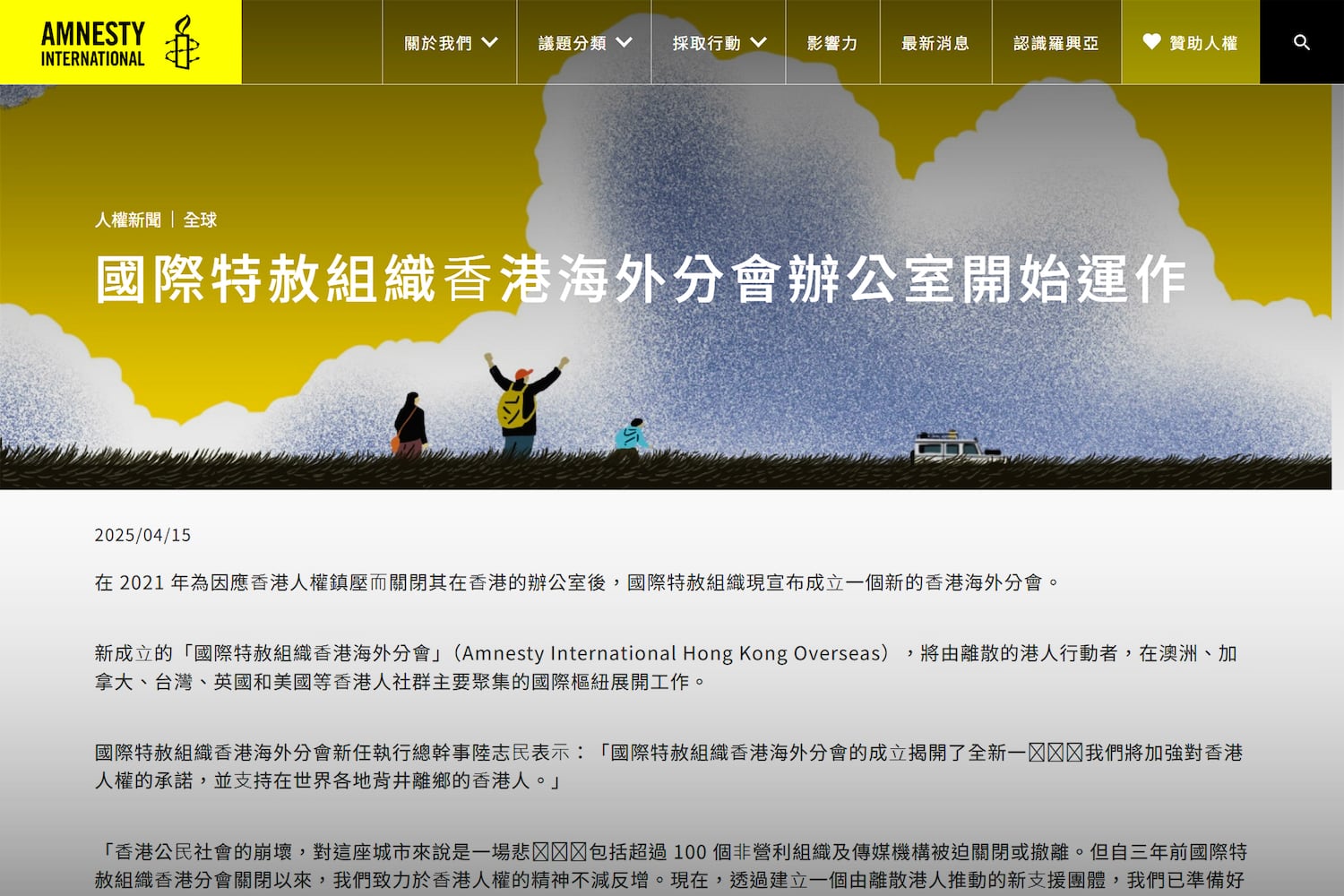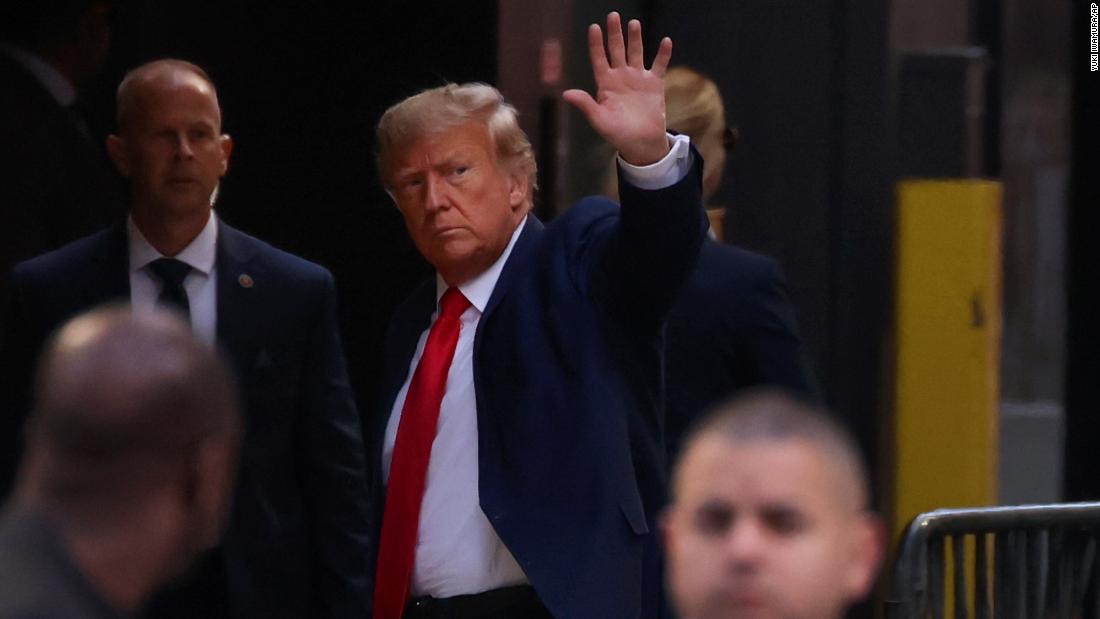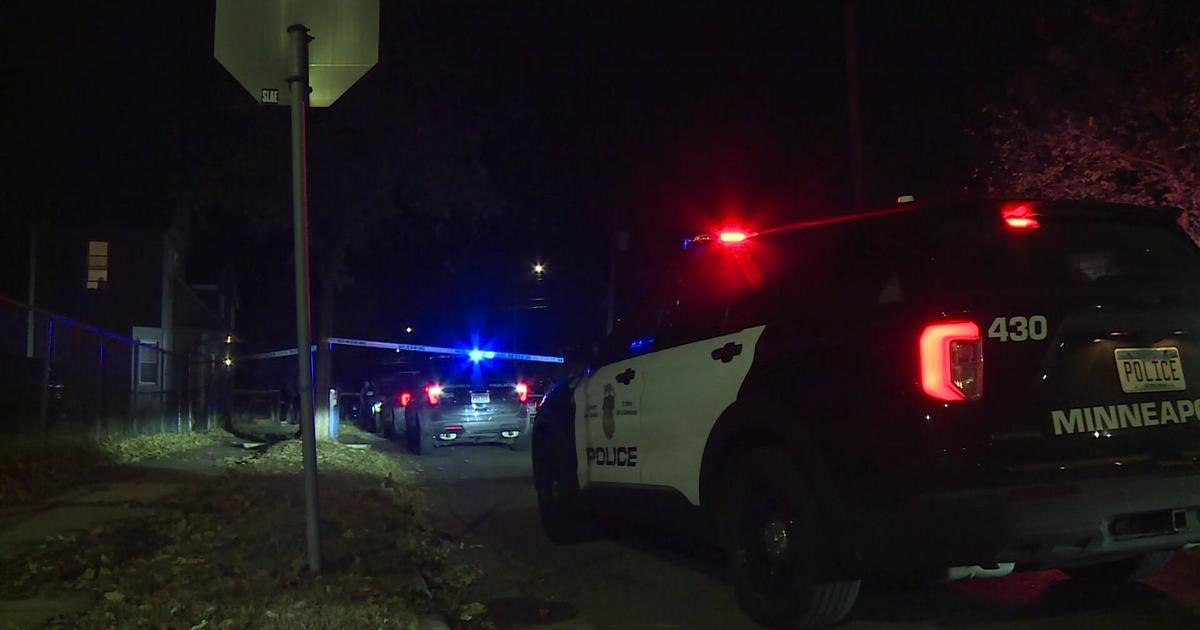Amnesty International opens Hong Kong section ‘in exile’
The group says it will keep advocating for the human rights of Hong Kongers, within the city and abroad.

UPDATED April 15, 2025, 2:50 p.m. ET
Human rights group Amnesty International said Tuesday it is opening a new Hong Kong section overseas, three years after closing its office in the territory because of a Chinese crackdown on civil society.
Amnesty International Hong Kong Overseas (AIHKO), will be led by Hong Kong diaspora activists operating from key international hubs including Australia, Canada, Taiwan, the United Kingdom and the United States, Amnesty said in a statement.
“The gutting of Hong Kong’s civil society has been a tragedy for the city with more than 100 non-profits and media outlets shut down or forced to flee,” the statement said. “We are now ready to intensify our efforts by building new communities of support driven by the Hong Kong diaspora.”
Amnesty said that since pro-democracy protests in 2019, more than 10,000 people, many of them students, have been arrested for protest-related activities. Over 300 people have been arrested for alleged acts of “endangering national security.”
It said that AIHKO is Amnesty International’s first-ever section founded and operated entirely “in exile.”
“Being overseas provides us with a degree of protection, allowing us to speak more freely and engage in advocacy work. We have a responsibility to do more to support those who remain in Hong Kong and continue their vital efforts,” Fernando Cheung, AIHKO board member and former Hong Kong legislator, was quoted as saying.
The U.K.-based human rights group was founded in 1961 with particular focus on the plight of political prisoners. Amnesty International’s local office in Hong Kong ceased operations on Oct. 31, 2021.
AIHKO, which is officially registered in Switzerland, will focus on advocating for human rights of Hong Kongers, within Hong Kong and abroad, the statement said.
Cheung said that the threat to Hong Kongers extended beyond the territory.
“Because Hong Kong has experienced changes in recent years, suppression is very real, and many people are actually very scared,” he told RFA Mandarin. “There is also a lot of transnational suppression overseas, and the influence of the Chinese government overseas.”
Joey Siu, also on the AIHKO board, told RFA: “We really want the international community and local Hong Kong people or overseas Hong Kong people to know that even if our bodies need to leave Hong Kong, our hearts and our advocacy work will continue.” Siu is a prominent rights activist who is wanted by the Hong Kong government.
Hong Kong was once a bastion of free media and expression in Asia, qualities that helped make it an international financial center and a regional hub for journalism and civil society groups.
But demonstrations in 2019 against Beijing’s encroachment on Hong Kong’s freedoms led to the passage of a national security law in 2020 that stifled dissent, making life increasingly precarious for independent groups that criticized China.
Radio Free Asia closed in its Hong Kong bureau in March 2024, saying the city’s recently amended national security law, also known as “Article 23,” had raised safety concerns for its reporters and staff members.
Updated with comments from board members.
This article has been sourced from various publicly available news platforms around the world. All intellectual property rights remain with the original publishers and authors. Unshared News does not claim ownership of the content and provides it solely for informational and educational purposes voluntarily. If you are the rightful owner and believe this content has been used improperly, please contact us for prompt removal or correction.







.png?#)




